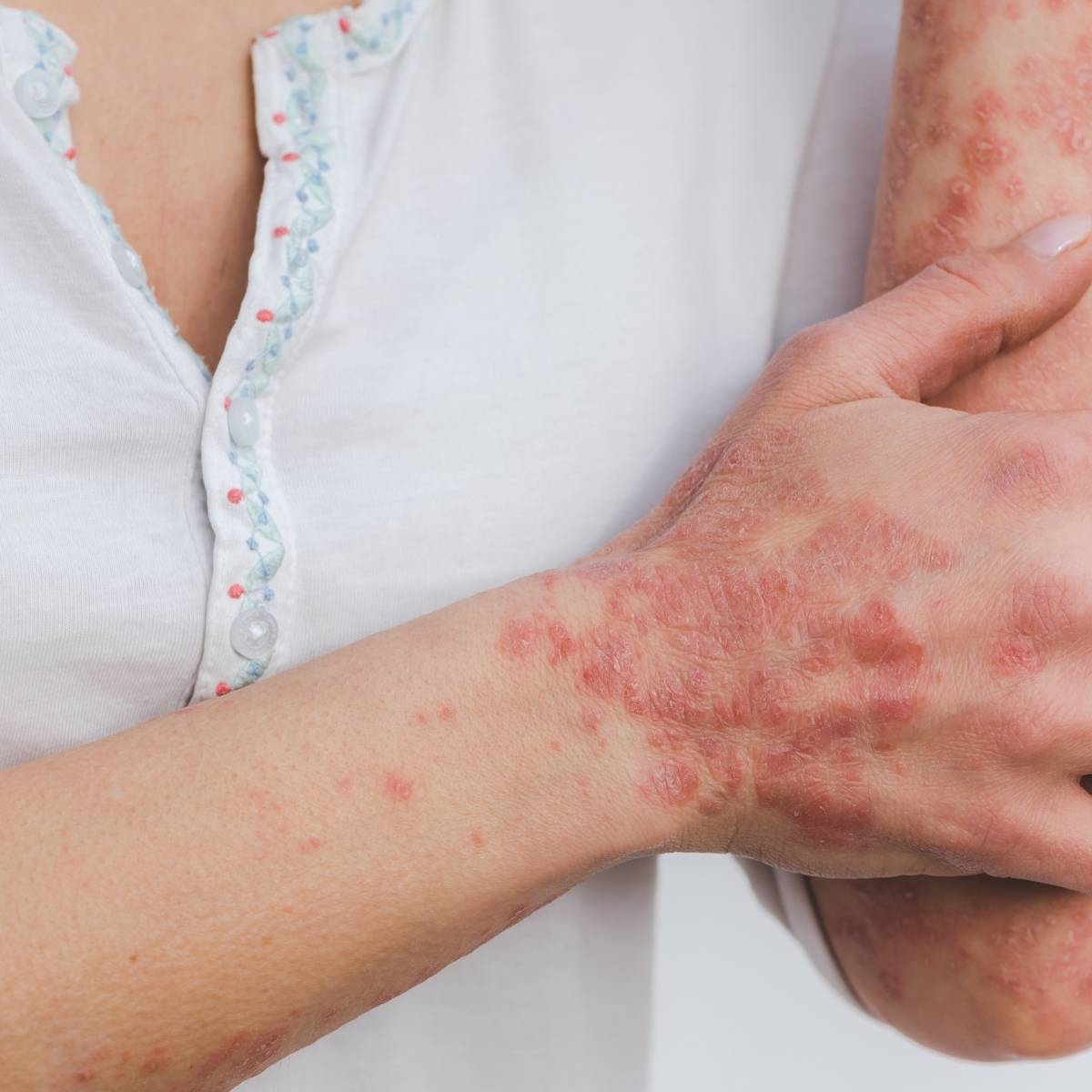Psoriasis is a skin condition that affects millions of people all over the world. It can be very embarrassing and cause a lot of self-consciousness for those who suffer from it.
Psoriasis is a skin problem where the skin cells grow too quickly. The body does not shed these excess skin cells, which leads to patches of thick, scaly skin.
It can occur on any part of the body, but is most commonly found on the scalp, knees and elbows.
There is no cure for psoriasis, but there are treatments that can help to control the symptoms. Some people may only have a few flare-ups a year, while others may have them more frequently.
If you are one of the many people who have it, then it is important that you know as much about it as possible.
In this blog post, we will discuss 5 things that you need to know about it. These are very important things to know and it is hoped that by the end of this post, you will have a better understanding of what psoriasis is and how to manage it.
It Is Not Contagious
First and foremost, psoriasis is not contagious. You cannot get it from someone else or give it to someone else.
It is important to know this because a lot of people think that they can catch it from others. This is simply not true.
This condition is caused by an overactive immune system. The body attacks healthy skin cells by mistake, which leads to the formation of patches that are covered in scaly skin.
Even though it is not contagious, it can be hereditary. If you have a family member who suffers from this condition, then you may be more likely to develop it yourself.
There Are Different Types of Psoriasis
There are 5 different types of it, each with its own set of symptoms.
Plaque Psoriasis
This is the most common type of psoriasis. It causes raised, red patches that are covered in white or silver scales. These patches can be itchy and painful.
Guttate Psoriasis
This often develops in children or young adults. It is characterized by small, red dots on the skin.
Inverse Psoriasis
Affecting the skin around the genitals, under the breasts, and in other areas where skin rubs together. It is marked by red, inflamed patches that are not covered in scales.
Pustular Psoriasis
This causes small, pus-filled bumps on the skin. It is usually found on the hands or feet.
Erythrodermic Psoriasis
This is the least common psoriasis, but it can be the most serious. It causes the skin to become red and scaly, and can lead to severe itching.
These have different effects on the body, but all of them can be painful and can cause a lot of discomfort.
Psoriasis Can Be Treated
While there is no cure for it, there are
treatments that can help to relieve the symptoms.
Topical treatments such as creams and ointments can be applied directly to the affected areas. These can help to reduce inflammation and itching.
Systemic medications are taken by mouth or injected. They work throughout the body to slow down the overactive immune system.
Light therapy is another solution option that involves exposing the skin to ultraviolet light. This can help to reduce the symptoms of psoriasis.
If you suffer from it, then it is important to talk to your doctor about the best treatment options for you.
Psoriasis is Not Caused by Poor Hygiene
Another common misconception about psoriasis is that it is caused by poor hygiene. This is not true. It is not caused by dirt or bacteria. It is also not an infection.
You can have it even if you are the cleanest person in the world. This situation is not caused by anything that you did or didn’t do.
When people hear that psoriasis is not contagious, they often think that it must be caused by poor hygiene. This is simply not the case.
It can be frustrating to deal with the symptoms of it. But it is important to remember that you are not alone.
It Is a Chronic Condition
Psoriasis is a chronic condition, which means that it is long-lasting. It can go into remission, which means that the symptoms may disappear for a while. However, it will always come back.
If you have it, then it is important to be patient. The condition can be difficult to deal with, but there are treatments and
red light therapy devices that can help to control the symptoms.
It is recommended to see a doctor. They will be able to diagnose the condition and discuss remedy options with you.
It can be a frustrating and embarrassing condition. But it is important to keep in mind that there are treatments available that can help to control the symptoms. With the right treatment, you can live a normal and healthy life.
These are just a few of the things that you need to know about it. It is important to talk to your doctor if you think that you may have this condition. They can help to diagnose it and determine the best course of treatment for you.
There is no shame in having psoriasis, and with the right information, you can learn to manage it and prevent flare-ups.




